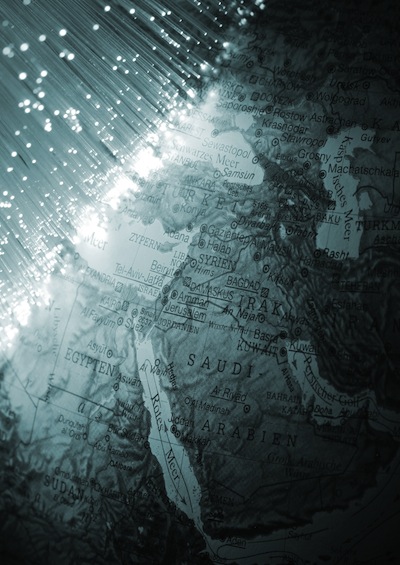Why the Military Campaign Against ISIS Will Fail
Thoughts on the future of the Arab world.
September 22, 2014

No matter how much Washington and its allies may wish otherwise, the military campaign against ISIS will fail, possibly with disastrous consequences.
Surprisingly, this outcome is not dependent on the issue that is currently so hotly debated – whether or not there will be “boots on the ground” (and whose).
▪ The Failure of Islam to Reform
To understand why, one needs to consider the dynamics and legacies of history. In the ultimate analysis, the existence of ISIS (the Islamic State of Iraq and the Levant) can be ascribed in good part to the fact that, in contrast to Western European Christianity, there was no reformation in the world of Islam.
This explains a core paradox: While Islam, in its earlier stages, was not just associated with, but was also the driver of great intellectual advances (in fields ranging from mathematics to philosophy, poetry and astronomy), the West nevertheless ended up taking its place as the originators and masters of the industrial and scientific revolutions that defined the modern era.
The key point is this: The Arab world was left way behind as the consequence of a serious lack of internal reform within the Arab world.
Many Arabs cite western imperialism as the major reason for its failure to join the modern world. Yet, looking through a wider lens at Western imperialism and the havoc that it created, it is the case that Western powers’ conquests were not limited to the Middle East, but extended throughout most of Asia.
Arguably, nowhere else were the Western powers’ conquests as destructive as in China.
China as role model
Despite the parallels in these regions’ fates, in the 21st century we are witnessing the resurgence of East and South Asia. The Chinese bitterly lament their century of humiliation, but the cure they have found lies in enterprise building, economic growth, education, innovation and investment in human capital – that is, in embracing capitalism and scientific modernity.
As the Chinese scholar Zheng Bijian has written: “The most important strategic choice the Chinese made [in the late 1970s] was to embrace economic globalization — rather than detach themselves from it.”
Meanwhile, West Asia remains a chaotic and backward mess. The Arab world is still in the mode of rejecting globalization rather than embracing it.
This does not just apply to the schismatic disputes, terrorism, inter-ethnic infighting, refugees, economic backwardness, political regimes, but also to society and science at large.
The seminal UNDP 2002 Arab Human Development Report identified three pivotal “shortages” – shortage of freedom, shortage of knowledge and shortage of womanpower. So long as these three shortages remain, prospects will be bleak.
If one bears in mind the immense contribution made by the Arab world to science and civilization in centuries past — and indeed the fact that not that long ago cities like Baghdad, Damascus, Beirut, Cairo and Alexandria were booming global centres of commerce and creativity — notably in the arts – then one can arrive only at one conclusion.
The panorama of the Arab world today is indeed depressing and discouraging. Compared with most other parts of the world, it is in regress as opposed to progress.
It can only be remedied by the Arabs themselves, based on a profound reform and indeed renaissance of Arab society. In the words of Zheng Bijian, it will take no less than an Arab “embrace of globalization” and modernity, by virtue of insight — and not by external military force.
Until and unless these reforms – this reformation and renaissance – occur in the Arab world, all Western interventions will fail, and indeed in all probability make the situation worse. The proposed battle to “the gates of hell” against ISIS will suffer the same fate.
What are the alternatives to intervention?
It should be made clear that “staying out” is not synonymous with “doing nothing.” Western countries must defend themselves, naturally, and try to prevent misguided youth from joining the ranks of the Islamist jihadists. We also need to provide what humanitarian assistance we can, especially to refugees.
Furthermore, while we cannot force the Arabs to embrace globalization – that would be highly counter-productive – we can be more engaging.
The Chinese Cultural Revolution – a fit of cult madness that killed and maimed millions – ended less than four decades ago. It would have been impossible to fathom in, say, 1974, two years before Mao died, that within 40 years a Chinese entrepreneur in IT would be making the biggest IPO in the history of the New York Stock Exchange.
If the Arab world could reform and embrace globalization, the glories of its civilization, respect and pride would surely return.
Takeaways
The Arab world is still in the mode of rejecting globalization rather than embracing it.
Not that long ago cities like Baghdad and Cairo were booming global centres of commerce and creativity.
No matter how much Washington and its allies may wish otherwise, the military campaign against ISIS will fail..

